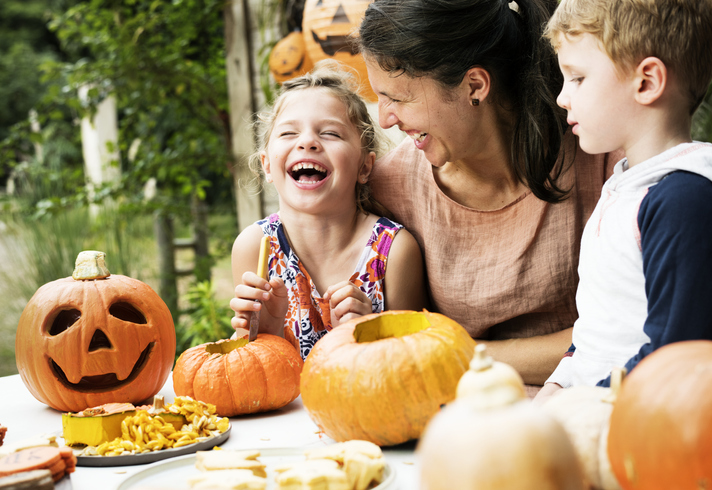 In the last year and a half, as I have spent more time with family members due to illnesses, I realized there were so many stories I had never heard. It prompted me to start asking more questions when we were together, like what are some of your favorite childhood memories and what traditions did you have growing up? It has been fun hearing these stories. I learned things about my grandparents I never would have known.
In the last year and a half, as I have spent more time with family members due to illnesses, I realized there were so many stories I had never heard. It prompted me to start asking more questions when we were together, like what are some of your favorite childhood memories and what traditions did you have growing up? It has been fun hearing these stories. I learned things about my grandparents I never would have known.
The upcoming holidays are a perfect time to talk and learn more about our families. As I looked more into sharing family stories, I came upon research that showed that family traditions and stories play a very important role in families. Some of the benefits include:
Teaching Values: Stories about family members or traditions are one of the best ways to teach values. Reading books at night before bed shows the value of education, prioritizing family dinners shows the importance of spending time together and sharing our days. Stories about our relatives does this as well. My husband and I both come from a long line of hard workers, people who served their communities and who also lived their lives to the fullest. From his great grandmother who lived to 103 years old and continued volunteering as a docent for the local art museum and traveling internationally into her later years, to both our grandfathers and our mothers who served on community boards, to his father, who loved finding the best lobster spot or ice cream stand and could fix almost anything. We are a family of problem solvers, who enjoys exploring, believes in doing our best, serves our community and who are not afraid of hard work.
Some families take these family stories and family values and create a family mission statement. Stephen Covey, author of “7 Habits of Highly Effective People”, also published “How to Develop Your Family Mission Statement” he believed so strongly in them. I have not done this with my family, but I hear from others that it was transformative. Some tips if this is something you would like to do:
- Make it fun. Get the Post-it Super Sticky Easel pad and you stick the pages to the wall to brainstorm with your kids.
- Let the kids lead. Let them tell you what they think the values are or should be and have the discussion start from there.
- Manage the time. Don’t make the exercise too long if your kids are very young.
- Consider having your mission statement framed and hung in the house afterward for a constant reminder.
- You could also consider writing a list of family values instead of a mission statement.
Strengthening a family bond: Traditions strengthen family connections. They provide the chance for face-to-face interactions and an opportunity to get to know and trust each other more. This could be regular family dinners (Taco Tuesday is a favorite at my house) or a special family gathering. My daughter told me the other day about a boy in her class whose extended family gets together each fall to press apple cider using the same press his great grandfather used. Researchers found that families than engaged in more activities together were less likely to experience conflict even 5 years later.
Providing a source of Identity: Sharing family stories as well as family traditions can help teach children where they came from and also communicate family values. Whether your relatives escaped the Holocaust, were immigrants who started a business and built a life, or were everyday people who served their community and took the time to have deep relationships, the stories of where we come from help us feel a part of something bigger than ourselves.
My daughter recently shared with me that her favorite family holiday is Passover. It is actually mine too. My husband’s family is Jewish, but I grew up Christian, so I didn’t know any of this before we married. There is so much rich history and storytelling in the Passover celebration. There are rituals, and food, and family taking turns reading around the table. There is also fun. The Afikomen, which is a piece of matzo, is hidden by the head of the family, and at the end of the Seder, the children have to go find it and ransom it back, or negotiate a price to sell it back to their Granddad. There are so many lessons during that evening.
In addition to the benefits listed above, traditions and sharing family stories have also been shown to build resilience in times of struggle, and they also happen to be the things we remember and reminisce on when we are older.
Researchers, Robyn Fivush, Ph.D. and Marshall Duke found that “children and adolescents who know more of their family stories show higher well-being on multiple measures, including higher self-esteem, higher academic competence, higher social competence, and fewer behavior problems.” They developed the “Do You Know?” set of 20 questions that are designed as a starting point for sharing family stories. You can find them here.
Some other questions that might be fun to ask are:
- If you could have a super-power, what would it be and why? (Fun for young kids)
- How did you spend you weekends when you were growing up?
- What are your 2 favorite childhood memories?
- What traditions did your family have growing up?
- What would you regret if you didn’t get the chance to do it?
- What are you most proud of?
- What experience in your life did you learn the most from?
- If you could travel anywhere in the world, where would you go and why?
- Do you have a family recipe you want to make sure gets passed on?
- Did you ever win any awards?
As you enjoy this holiday season, I hope some of these ideas will help build on your strong family relationships. You may even want to start some new traditions. I think this year we may implement the Icelandic tradition of giving books on Christmas Eve and snuggling in for a quiet evening of reading. This will be in addition to our tradition of opening new pajamas. Sounds like a nice combination to me. See more holiday traditions by clicking here.





